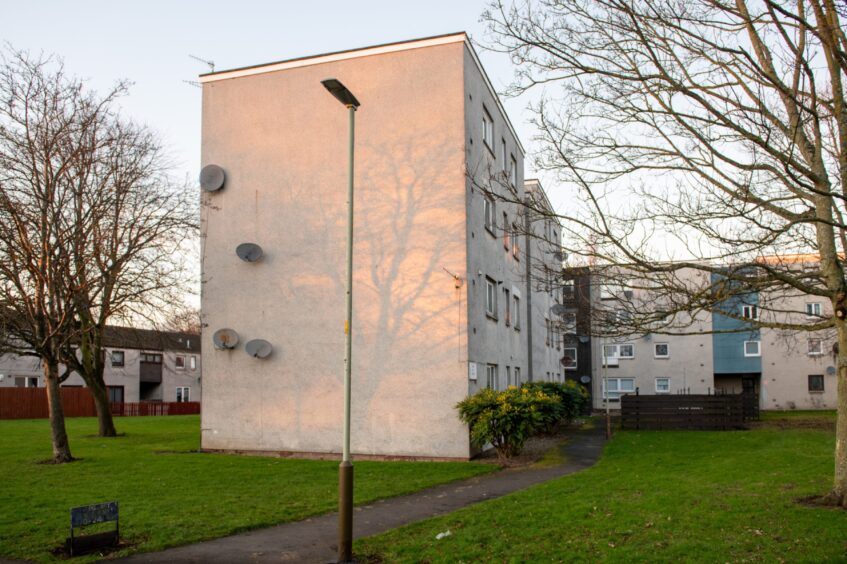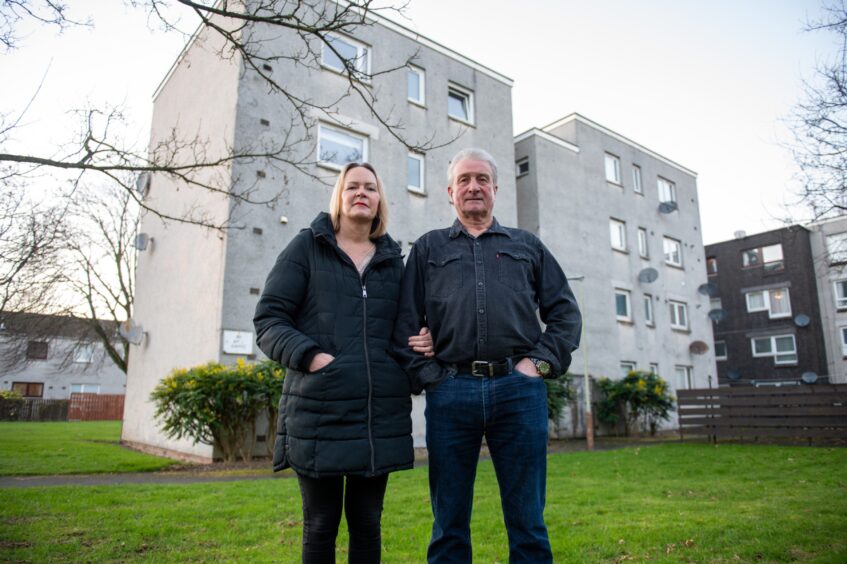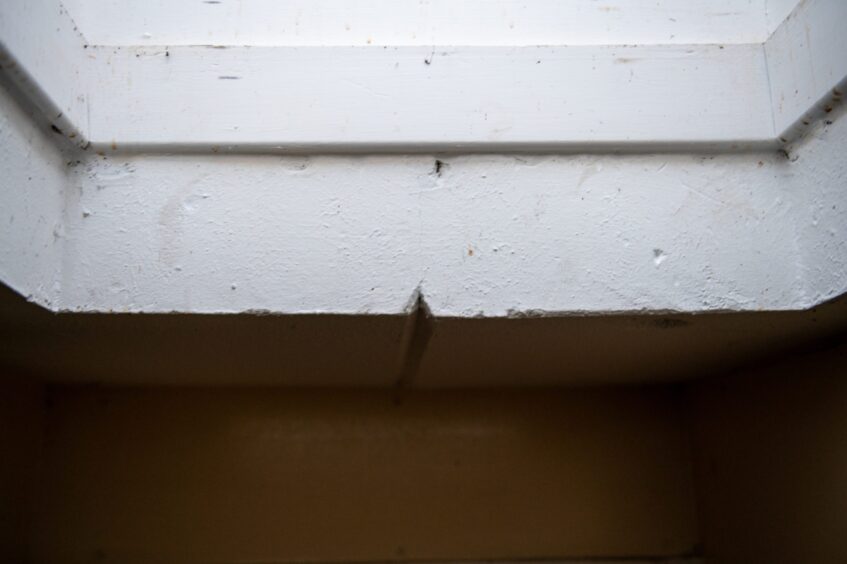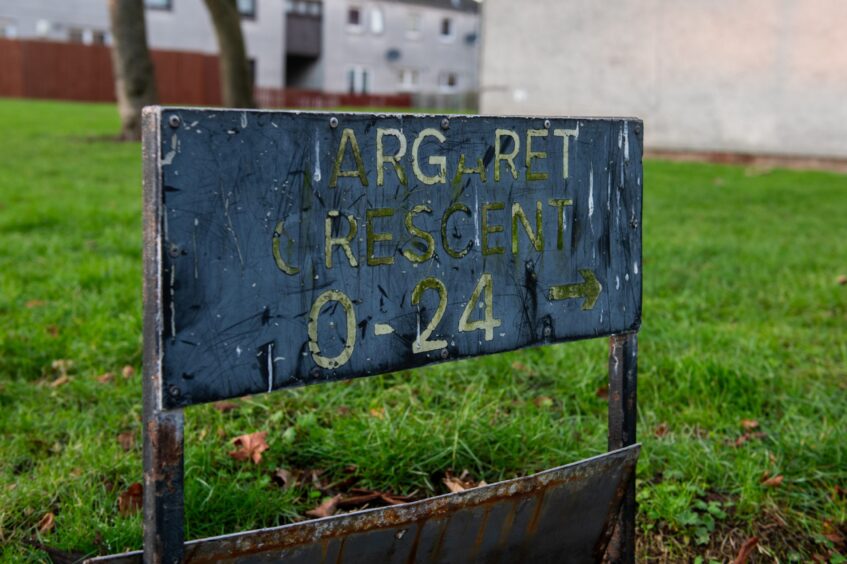A Dundee couple say their retirement plans have been “ruined” after Raac was discovered in the roof of their flat.
Hazel and Derek Boyle have lived in their top-floor flat in Margaret Crescent in West Ferry for more than 25 years but had planned to move after retiring.
However, last year Reinforced Autoclaved Aerated Concrete (Raac) was found in the building’s roof.
As a result, the couple say they could be “stuck” in their home as the potentially dangerous concrete could stop a buyer from securing a mortgage.
They claim similar flats nearby have already struggled to sell.
‘Worrying’ Raac discovery could leave Dundee couple ‘stuck’ in flat
Hazel, a lab technician at Abertay University, planned to join her husband, a former joiner at Dundee City Council, in early retirement and move elsewhere.
Hazel told The Courier: “We are in the top-floor flat so it is affecting us the most as the roof is right on top of us.
“My husband is now retired so we thought we could sell up but now we won’t be able to and it is like the council are not taking anything on board.
“It is like a never-ending problem and we don’t know what to do.
“We are mortgage-free so thought we could sell up to move but we don’t know what will happen now, it is a bit worrying.
“It has totally ruined our retirement plans. I was hoping to retire early as my husband is older and we have got a grandchild.
“We don’t know what’s around the corner.
“There’s a lot needing done inside the flat but we don’t want to stay so we don’t want to spend money on it.
“But we might also be stuck here.
“Or we could do the work then they could decide to knock it down because of the Raac.”
Dundee couple claim damp in kitchen could be caused by Raac
Hazel, 56, and Derek, 68, claim they were told the damage to the roof was not bad enough to warrant a repair during an inspection by the council last year.
There are still council tenants in the block so the local authority holds some responsibility over the condition of the building.
The couple also believe the decay-prone concrete could be behind damp problems in their kitchen.
The Institution of Structural Engineers says Raac can compromised if it has been damaged by water due to its porous structure.
Hazel said: “The fact we know it could fall down is scary, especially with our one-year-old granddaughter.
“I think they need to be more aware, they need to get funding from somewhere to do something about it.
“It was the council who built these houses and they should take some sort of responsibility.
“They haven’t said when but they have said they are going to start work in some buildings that are most dangerous and in need of repair.
“They are saying ours isn’t needing work done but there are houses here up for sale and they are not moving.
“These are good-sized flats but nobody is looking at them.
“I keep thinking, ‘Are we going to be stuck here?'”
A spokesperson for Dundee City Council said: “Plans for an ongoing inspection regime in properties where Raac has been identified were agreed in May.
“It was noted that the Raac in the majority of properties is in a satisfactory condition and will be dealt with as part of capital programmes.
Dundee Raac Campaign Group set up
“In terms of the inspections, following guidance from the Institution of Structural Engineers, visual inspection of the panels for any changes since the previous inspection is the methodology to be followed as intrusive inspection (involving cutting or opening up of the panels) is likely to create weakness in the panel leading to accelerated degradation.”
Dundee dad Wayne Hoskins set up the Dundee Raac Campaign Group after claiming he had been left ‘stranded’ in his home after the concrete was discovered.
This week, Craigie resident Brady Macphail told how he fears he could lose £40,000 on his flat due to Raac.
The Courier has taken a look at what to do if you have Raac in your Dundee or Angus property.
- Look out for the third and final article in our mini-series on the impact of Raac on Dundee residents















Conversation